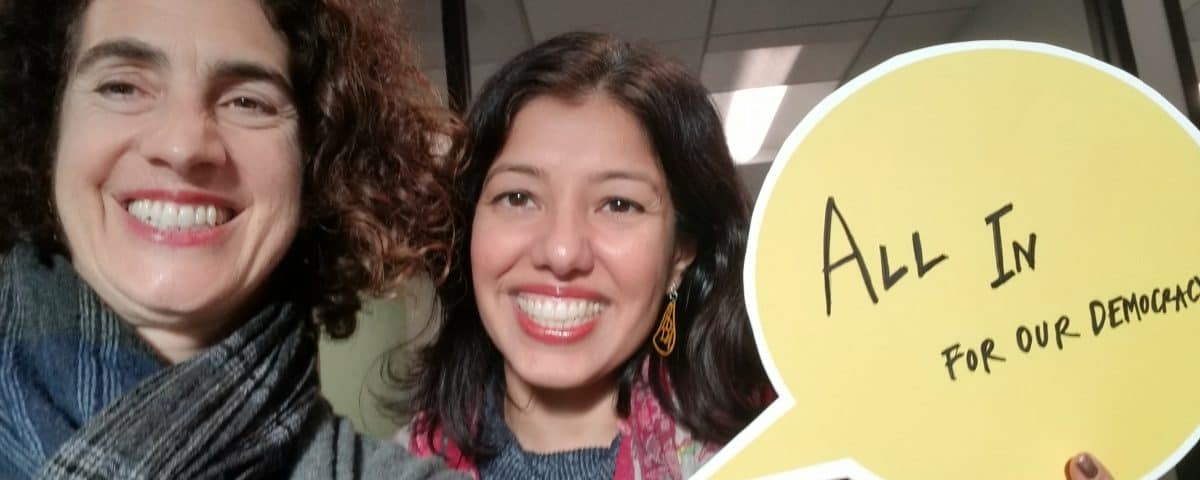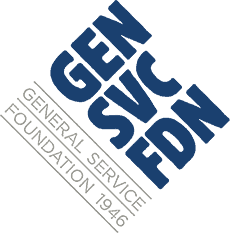
A Series on Risk, Change, and the Year Ahead:
A Conversation with Dimple Abichandani
December 19, 2019
By Emily Katz, Vice President of Public Affairs, Northern California Grantmakers: A conversation with Dimple Abichandani
I asked five foundation executives—private, public, family, tech, small and large—if they’ve taken any special measures to ready themselves for the year ahead. Kicking off our series, we’ll hear from Dimple Abichandani who heads the General Service Foundation, a private social justice foundation with a call to action for the sector.
EK: With the election ahead, what’s your appetite for risk?
DA: I would say we have a healthy appetite for risk, and the risk that I’m most focused on is the risk of not doing enough. We are a social justice funder and our grantees are on the front lines of so many recent attacks, whether it’s reproductive justice, immigrant rights, racial justice. So for the foundation the risk is, if we don’t invest enough, if we take a step back and say, well, let’s just see what’s going to happen.
We see this next period as a time where tremendous change is possible. And big setbacks are possible. And in either of those scenarios, resources will be needed. As funders, it’s our role to provide those resources.
EK: Are you talking about reshuffling the same deck, or are you bringing other kinds of resources to the table?
DA: We are thinking about the resources in a couple of ways. First, we have increased our payout over the last few years and for 2020. We actually updated our spending policy so that in addition to financial factors, we are weighing needs and opportunities in the field as we make a decision about how much to spend.
Just as importantly, we’ve been thinking about the timing of our 2020/2021 grantmaking. We decided in January of 2019 to fully resource our grantees through the spring of 2021 by June of 2020 so that our grantees are not having to spend any time over the summer of 2020 coming to us for resources; so they are positioned well to do the most important work that they need to do which is not fundraising especially not from an existing funder. This decision essentially means that we are doing four cycles of grantmaking in three dockets- we are finding that it is worth it and an opportunity to fund not based on habit, but based on what is needed right now. We know that resources will be required, whatever the outcome of the election. And so, it seems like a good idea for us as funders to be thinking about how to move those resources, early.
We’ve also been in a process of streamlining our application and reporting process, with a goal of eliminating undue burdens. We’ve eliminated written reports and replaced them with phone calls, which are actually much more useful for our own learning and we’ve heard from grantees that it advances their work because we’re building a relationship in those conversations. We’ve extended the term on grants, and now we have many three-year commitments whereas a few years ago, one to two year grants were the norm for us. These shifts don’t’ actually didn’t cost us more resources, and you could make the case that they’ve saved us resources because we’re not internally touching the same grant over and over. These shifts have increased the impact of our grants by making them longer, more flexible (by defaulting to general operating support) and more supportive.
EK: Is there anything else you’re doing differently or the same?
DA: We are seeing every day the vulnerabilities in our democracy. As we go into this significant year we asked ourselves as an institution, “who are we betting on in this moment? and “where do we see promise and potential for our democracy?”
We see women of color as real change agents across issues and across communities. We made a series of grants investing in the leadership of women of color and youth organizing efforts like the Sunrise Movement and the Texas Youth Alliance.
EK: And what are you most hoping to see from your peers in philanthropy? In this moment?
DA: I want to see us be responsive. And that starts with acknowledging and understanding that this is not an ordinary time that we’re in. This is not an ordinary year. I think all of our grantees know that. I think in philanthropy, sometimes, it’s not clear that funders all understand that. And I say that because there are many funders who have not changed their spending policies or increased their payouts or made meaningful changes that are responsive to the increase in need we’ve seen in recent years.
EK: Is there anything else you wanted more people to know or be thinking about?
DA: We sometimes have a habit in philanthropy to take a step back when it’s a big election year, out of concern and fear of not wanting to cross any lines. We are a private foundation and the investments we are making to strengthen our democracy are permissible c3 investments. It’s a really good time for us to do self-education and understand the boundaries; what we can fund and what we can’t, and to understand that so much of what’s needed right now is absolutely within our ability to fund as private foundations. It’s time for us as funders to be all in for our inclusive democracy.
